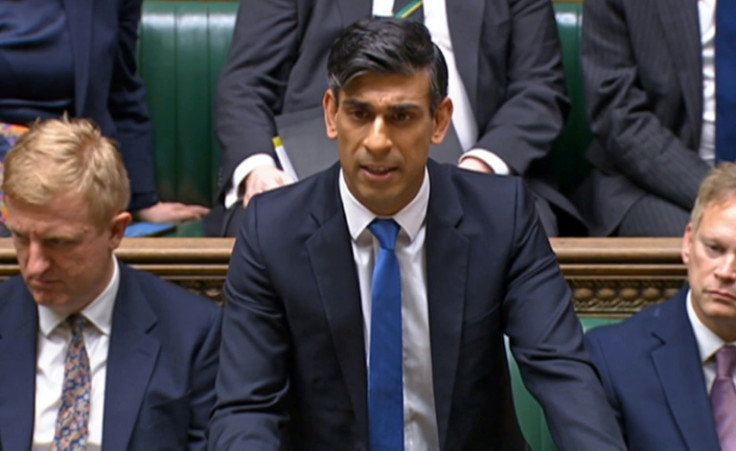
Rishi Sunak has announced plans to ban disposable vapes, due to concerns over a rapid increase in use amongst children.
The prime minister is also expected to crack down on marketing laws, restricting vape flavours and limiting coloured packaging intended to appeal to children.
The Scotland and Wales governments will also prohibit single-use vapes.
The proposed ban, which will form part of legislation that has to be approved by parliament, comes as teachers report pupils showing signs of nicotine dependency in the classroom.
Figures from the Action on Smoking and Health (Ash) charity suggest 7.6 per cent of 11 to 17-year-olds now vape regularly or occasionally, up from 4.1 per cent in 2020.
The announcement follows the prime minister's plans to create a "smoke-free generation" last year, with it becoming illegal to sell tobacco products to anyone born on or after 1 January 2009.
Revealing the policy ahead of a visit to a school on Monday, Mr Sunak said: "As any parent or teacher knows, one of the most worrying trends at the moment is the rise in vaping among children, and so we must act before it becomes endemic.
"The long-term impacts of vaping are unknown and the nicotine within them can be highly addictive, so while vaping can be a useful tool to help smokers quit, marketing vapes to children is not acceptable.
"That is why I am taking bold action to ban disposable vapes – which have driven the rise in youth vaping – and bring forward new powers to restrict vape flavours, introduce plain packaging and change how vapes are displayed in shops.
"Alongside our commitment to stop children who turn 15 this year or younger from ever legally being sold cigarettes, these changes will leave a lasting legacy by protecting our children's health for the long term."
Vaping is considered to be substantially less harmful than smoking, but it has not been around for long enough for its long-term risks to be known, according to the NHS.
The vapour that is inhaled can still contain small amounts of chemicals that are found in cigarettes, including nicotine - which is addictive but not seen by the NHS as one of the most problematic ingredients in cigarettes.
Smoking remains the UK's single biggest preventable killer, causing around one in four cancer deaths and leading to 80,000 deaths per year, while the health effects of vaping remain unknown.
The new measures follow a government consultation into smoking and vaping which was launched last year, in which nearly 70 per cent of parents, teachers, healthcare professionals and the general public indicated their support for further restrictions.
Enforcement agencies, including Border Force and HMRC, will receive £30m in new funding a year to enforce the measures.
The government will also bring in new fines for shops in England and Wales that sell vapes illegally to children, in addition to the maximum £2,500 fine that local councils can already impose.
The government said a further public consultation will take place to decide which flavours should be banned and how refillable vapes will be sold.
Among the child-friendly vape flavours currently available are those inspired by cookies, jam and energy drinks.
Under its plans, the government is expected to use the Environmental Protection Act to ban disposable vapes and hopes to achieve its aim by the end of 2025 at the latest.
Campaigners have long argued that disposable vapes are wasteful and that the materials and chemicals used to make them, including their lithium batteries, make them difficult to dispose of safely.
Deborah Arnott, chief executive of Ash, welcomed the government's strategy. At the same time, Dr Camilla Kingdon, president of the Royal College of Paediatrics and Child Health, said creating a "smoke-free generation" would reduce young people's chances of developing preventable diseases in later life.
However, the UK Vaping Industry Association said it was "dismayed" by the announcement, adding that disposable vapes had "played a key role in helping millions of adults quit and stay off cigarettes".
"While action to prevent youth access to vaping is critical, this move smacks more of a desperate attempt by the government to sacrifice vapers for votes," it said in a statement.
The Association added that the ban would put children at greater risk by "turbo-charging the black market" and increasing the availability of illicit vapes. Instead, it said there should be better enforcement of the current laws.
The UK has joined a small group of countries planning to ban disposable vapes.
Australia, France, Germany, and New Zealand have all announced similar plans recently, although only New Zealand has so far implemented them.







